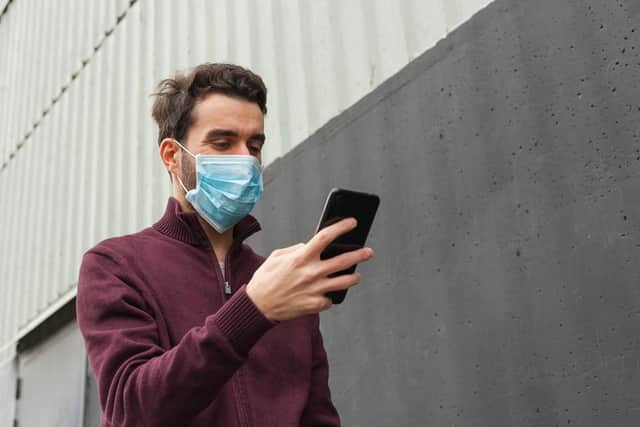Covid-19: Tracers have failed to contact almost 700 Scots travellers who should be in quarantine
Almost 700 Scots who should be in quarantine after overseas trips have still not been contacted by coronavirus tracers – and fewer than 20 cases have been passed to police – according to figures from Public Health Scotland.
The data shows that of the 36,826 Scots who should have self-isolated after visiting higher risk countries, staff at the National Contact Tracing Centre attempted to get in touch with 3,614.
Advertisement
Hide AdAdvertisement
Hide AdThe figures showed there were 686 cases where the teams were unable to contact the person,


Separate figures from Police Scotland showed the force has only received 19 reports from Public Health Scotland regarding travel regulations.
Liberal Democrat health spokesman Alex Cole-Hamilton called on the Scottish Government to explain the “glaring gaps” in the figures.
Mr Cole-Hamilton said Health Secretary Jeane Freeman should “urgently clarify” the issue.
He said: “People will be rightly puzzled at the glaring gaps in the numbers when it comes to quarantine orders for those coming in from higher risk countries.
“Public Health Scotland have recorded almost 700 people that couldn’t be tracked down but only 19 referrals were made to Police Scotland.
“If contact tracers can’t find people do they just give up? The public need to have confidence in this system and the strength of our measures to catch cases coming in from abroad.
“If the system is lapsing in any area people will be vulnerable. The Health Secretary needs to urgently clarify this process.”
Advertisement
Hide AdAdvertisement
Hide AdA Scottish Government spokeswoman said: “Public Health Scotland contact 100% of people who are required to quarantine by email and then follow up a random sample of these through telephone calls to establish if they need any information, guidance or other support.
“We have previously said that Public Health Scotland would make contact with around 20% of travellers, up to a maximum of 450 per week – which is considered to be a suitable and robust sample size.
“We are currently exceeding that figure with around 600 contacts per week.
“If the National Contact Tracing Centre is unable to make contact with an individual following a number of attempts, then their details are passed to Police Scotland who will continue with the follow-up process to engage, explain, encourage, and enforce the law, where necessary.
“We are continuing to work closely with Public Health Scotland and the National Contact Tracing Capacity to increase resources and ensure performance can be maintained as demands increase in line with the lifting of lockdown.”
A message from the Editor:
Thank you for reading this story on our website. While I have your attention, I also have an important request to make of you.
The dramatic events of 2020 are having a major impact on many of our advertisers - and consequently the revenue we receive. We are now more reliant than ever on you taking out a digital subscription to support our journalism.
Subscribe to scotsman.com and enjoy unlimited access to Scottish news and information online and on our app. Visit https://www.scotsman.com/subscriptions now to sign up.
By supporting us, we are able to support you in providing trusted, fact-checked content for this website.
Joy Yates
Editorial Director
Comments
Want to join the conversation? Please or to comment on this article.